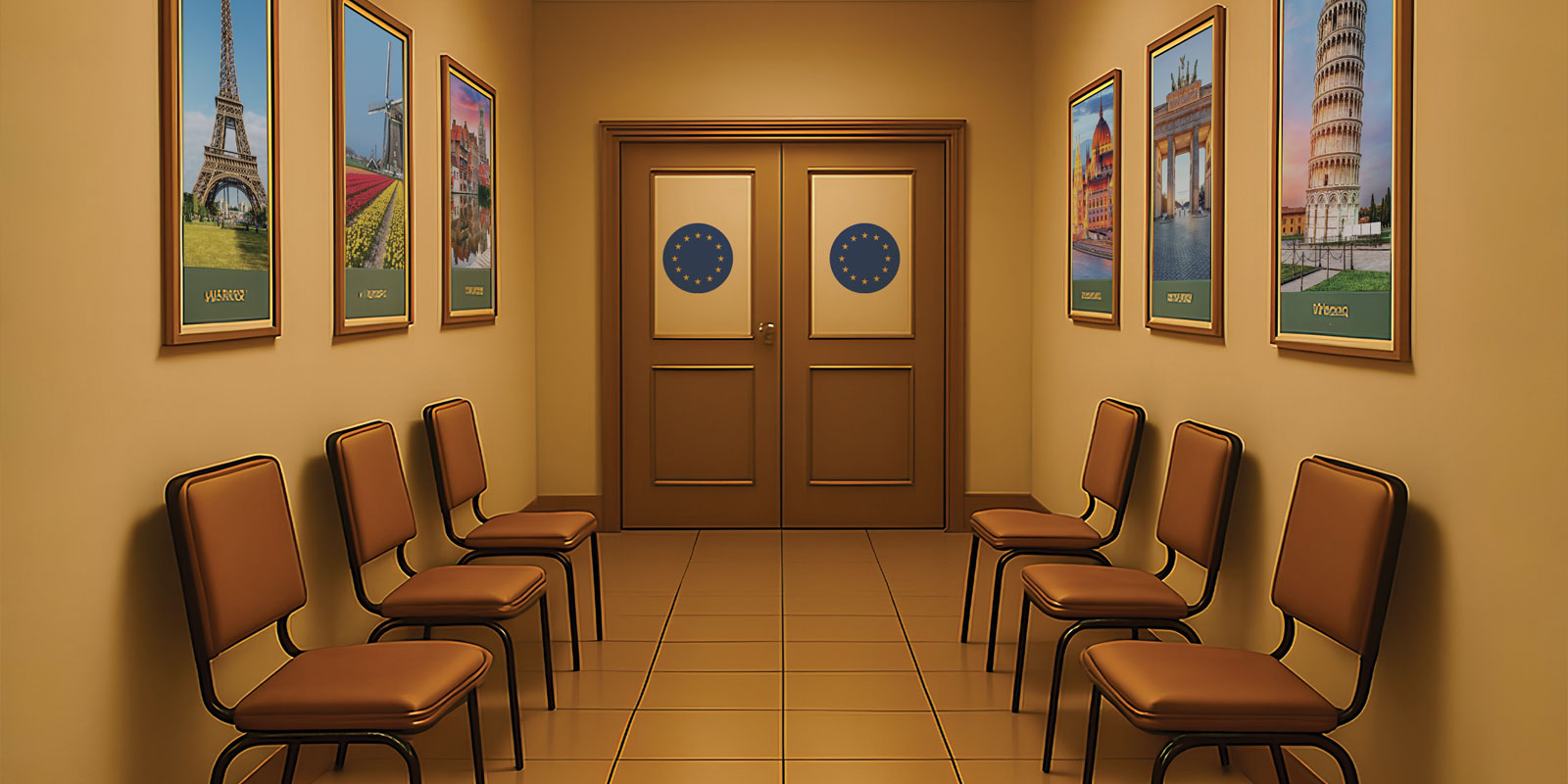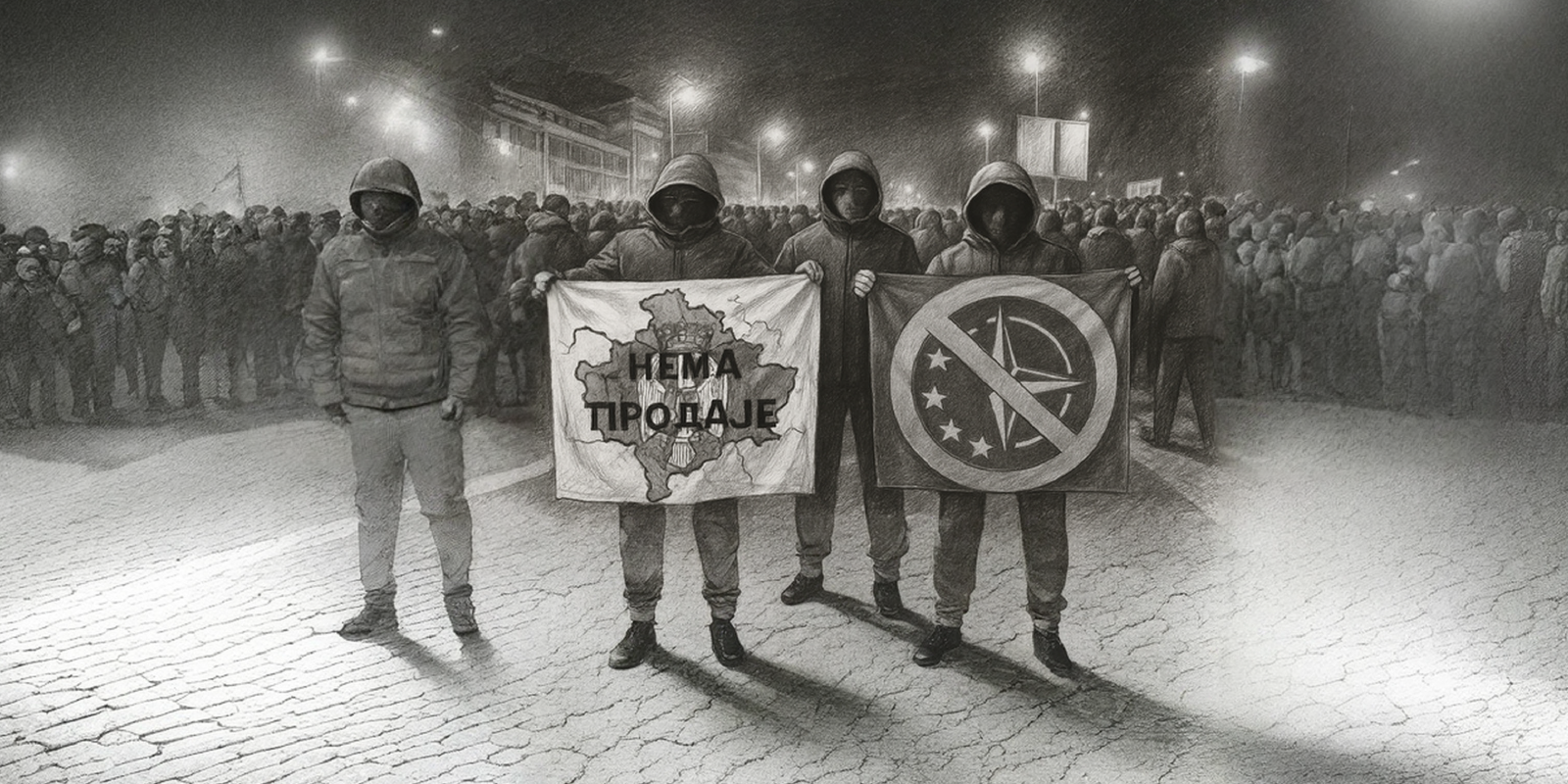PUBLICATION: Analysis
Serbian Elections, Political Survival in Times of Global Crises
The elections in Serbia will be held in a very dynamic (geo)political and security environment.
Kosovo, lithium, Trump, Middle East…the English would say that I mixed apples with oranges, but there is a logic behind the seemingly unrelated issues. Serbia’s foreign policy and geopolitics is one of the topics of discussion in the Serbian elections scheduled for December 17th, but not the most important. However, many foreign media and experts wonder if these elections will bring a geopolitical shift. Moreover, many are concerned about possible foreign (read: Russian) interference in the election process.
Before assessing the foreign influence(s), it is important to emphasize that the elections in Serbia will be held in a very dynamic (geo)political and security environment. First of all, the elections were announced a month after the violent incident in the village of Banjska in northern Kosovo, which resulted in the killing of a Kosovo police officer and three members of paramilitary forces from Serbia. In a later address to the Serbian public, Vučić said that Banjska was a ‘tactical mistake,’ drawing a parallel with the bombardment of the hospital in Gaza and noting that neither Hamas or Israel will ever admit that they bombed the hospital.
Given the context, many pundits argue that early elections will not only help Vučić to divert public attention from the Banjska incident and the public outrage and massive protests triggered by the two deadly mass shootings occurred last May, but it will also provide the Serbian president with room for maneuver in foreign relations, i.e. to once again postpone unpleasant issues, such as imposing sanctions against Russia and reaching a final compromise on Kosovo, until next summer.
Overwhelmed by the news about Banjska, Serbian public was unaware that two days before the incident, Serbian president, during his visit to the UN General Assembly in New York, had signed a letter of intent with the European Commission on a strategic partnership in the areas of batteries and critical raw materials, including lithium. The move undoubtedly secured political support from the European Union for the ruling party ahead of the elections, as access to the country’s natural resources and critical raw materials is essential for the EU’s green transition, decoupling from Russia and global competition with China. Therefore, it is not surprising that news of this strategic partnership has been suppressed in the Serbian mainstream media, since lithium mining is a highly polarized topic in the country and has led to massive demonstrations and a series of roadblocks in 2021.
Following the outbreak of violent conflict in Israel and Palestine, the Serbian parliament adopted an 850-page bilateral trade agreement with China. The deal was barely mentioned by European media, due to the alarming media reports coming from the Middle East and other conflict zones. However, Serbian leaders hailed the deal in the mainstream media as a ‘big step forward’ in the economy and foreign affairs. Politicians have failed to mention the defence aspects of the trade deal, as well hidden within the hundreds of pages are provisions to eliminate the custom tariffs on Chinese arms, missiles, bombs, torpedoes, tanks, and other defence-related products, which can open the European market for sanctioned Chinese companies. The ruling party seems to think that Serbia’s plan to buy more arms from China will not raise flags among Western countries, as they are currently too preoccupied with other global events.
The Serbian leadership has been very cautious in its reactions to global events, especially the Hamas attack on Israeli citizens on October 7th, because it relies on Israeli lobby groups in the US to open the White House door for Serbia, especially in the case of a future Republican administration. In one of the last interviews before the elections, Vučić conveyed the message to domestic audience that Ukraine’s setback, along with the return of Republicans in the White House, will provide Serbia with a favourable geopolitical environment. So, the strategy of the current Serbian leadership is to “survive politically” until the next presidential elections in the US. Considering that, early elections are nothing more than a way of buying time, in the hope that global events will favour Vučić’s position.
The year 2024 will not only be marked by the US presidential elections, but also by the equally important elections for the European Parliament. Based on the results of Poland’s parliamentary elections held in October, one might think that there is a chance to defeat the populists and reverse democracy’s decline in the European Union. However, the victory of Geert Wilders’s far-right party in November’s Dutch elections sent shockwaves through Europe, signaling that the far right is becoming the political mainstream. The outcome of the Dutch elections could suggest that other European nationalist and far-right parties will also instrumentalize widespread frustration with migration to win power in next year’s European Parliament elections.
Another far-right leader at European Council meetings that could upend the upcoming debates on enlargement, among other things, may spell bad news for pro-European forces in Serbia, but not necessarily for the current leadership. Since 2015, the Serbian government took a very cooperative stance on the “refugee crisis”, thereby securing the political support of key European leaders and the funds to maintain clientelistic networks. At the same time, Vučić worked to strengthen alliances with like-minded leaders and illiberal democracies in the EU and beyond. Italian Prime Minister Giorgia Meloni’s visit to Serbia showcases that it is useful for Italy to have like-minded friends in high places in Belgrade to address the migration issue. In turn, Meloni’s support for Serbia’s membership in the EU can be also interpreted as political support for the ruling elite in the midst of the pre-election campaign.
Foreign interference in Serbia’s elections
There is a little evidence of any concrete, orchestrated clandestine involvement of Russian or any other foreign actors in the pre-election campaigns ahead of Serbia’s elections. However, American, EU and Russian officials alike do not seem to mind directly or indirectly supporting, if not openly promoting, Serbian President Aleksandar Vučić.
Even though several declaratively Russian or pro-Russian political parties will be participating in the upcoming elections at different administrative levels, this is not an indicator of any greater Russian presence in the Serbian political scene. In fact, most if not all these parties founded by ethnic Serbs- prove to be either directly or indirectly linked to, and influenced by, the Serbian President and his ruling Serbian progressive party (SNS), rather than by the Kremlin.
For example, the list holder of the newly founded “Russian Party – Serbs and Russians brothers forever” is Ljubica Bertović from Subotica, a SNS activist who works as an assistant to the director of ‘Park Palić,’ a company established by the Republic of Serbia, Autonomous Province of Vojvodina and the city of Subotica. Furthermore, although receiving the status of a minority party, the “Russian Party – Slobodan Nikolić,” was not supported by a single signature of anyone with a Russian first and last name. Moreover, there is not a single person of Russian origin among the seventeen candidates for the Belgrade city council. Since 2020, the Russian Party has participated in the ruling coalition in the city of Šabac together with the SNS and the “European Green Party of Serbia”. The Greens – which don’t represent the branch of European Green Party and are not part of the environmental movement in Serbia – is led by a doctor of internal medicine employed at the health care centre in the city of Šabac.
The number of declaratively Russian parties could have been even higher, if not for the decision of the Serbian state election commission (RIK) to reject the electoral list of the Russian minority alliance – Pavle Bihali Gavrin, which includes Serbian Russian Wolf Party and Serbian Greek Movement.
Despite the fact that more than 200,000 Russians came to Serbia in the last two years, only 110 Russians received Serbian citizenship in the period 2021-2023. It is not clear if and how those Russians who have received Serbian citizenship will vote in these elections, but it is clear that they do not support the pro-Russian parties that have sprung up like mushrooms in recent years. Based on countless local and foreign media reports, most Russians residing in Serbia have expressed strong anti-war and anti-Putin attitudes and are surprised and confused by the state-sponsored pro-Russian propaganda in Serbia.
The participation in the elections of traditional far-right parties promoting Russia-friendly views is also not an indicator of Russian interference. Vojislav Šešelj, Vučić’s political mentor and leader of the Serbian Radical Party (SRS), announced that radicals will join forces the SNS at all levels, except for the parliamentary elections. This marriage of convenience would ensure more votes for progressives, as the pro-Russian and anti-Western radicals continue to enjoy support at the local level, especially in Vojvodina. In 2020, the ruling party lowered the threshold from 5% to 3% to facilitate the entry into parliament of pro-Russian right-wing parties, such as the Serbian Party Oathkeepers, the Serbian Movement Dveri and the NADA Coalition, most of which are seen as an extended arm of the ruling party. Participation in the elections of extreme right parties is an ideal boogeyman for Vučić, as it allows him to position the SNS as a centre-right party, and to portray himself to the West as a stabilising factor and as a barrier to nationalist excess.
Far-right parties can also agitate for what Vučić cannot say out loud, without the risk of jeopardizing his international reputation. Unlike Vučić’s statement from January 2023 that “failure to accept the Franco-German proposal will stop investments and the path to the EU,” the focus of the campaigns of pro-Russian right-wing parties is the rejection of the Franco-German plan for resolution of the Serbia-Kosovo relations (agreements accepted in Brussels and Ohrid). In addition, the ‘Russian Party – Serbs and Russians brothers forever’ is demanding Serbia’s immediate entry into the BRICS, the intergovernmental organization comprising Brazil, Russia, India, China, and South Africa.
So, what are the Serbian elections about in the end?
In the last six months Vučić has been facing “mounting pressure from the opposition after the two deadly mass shootings in the spring sparked public outrage and triggered massive protests”. The president and government had no response to the violent incidents, other than calling early elections and further polarizing the society. In addition to avoiding solving problems, consolidating power through early parliamentary elections is the method Vučić has used in all the eleven years of his party’s rule. Of the six parliamentary elections held in the last eleven years only the ones in 2012 and 2020 were regular. According to pundits, such a de facto permanent election campaign weakens political opponents, primarily from the democratic opposition, and allows Vučić to set the political pace of the country. Moreover, permanent election campaign, in combination with the government control over most of the local media, ensures access to state funds which are used to consolidated the electorate, allowing the SNS to remain in power unchallenged since 2012.
Tags: Serbian elections
PDF PREVIEW
RELATED

Date: 22.10.2025.
Author: Jelena Pejić Nikić |
This policy paper examines Western Balkan stakeholders' perspectives on what is needed for meaningful enlargement and the EU reforms they consider essential for an effective expanded Union. Field research in spring and summer 2024 included 16 high-level interviews with representatives from all six countries of the region.

Date: 13.10.2025.
Author: Belgrade Centre for Security Policy
The subject of analysis is the content related to student and civic protests distributed on the Telegram channel “BUNT je stanje duha.”

Date: 04.08.2025.
Author: Vuk Vuksanović |
The analysis is based on the "Security Radar" public opinion survey conducted by the Friedrich Ebert Stiftung in selected European countries, including Serbia, and a comparison of public opinion findings for 2022 and 2025.



